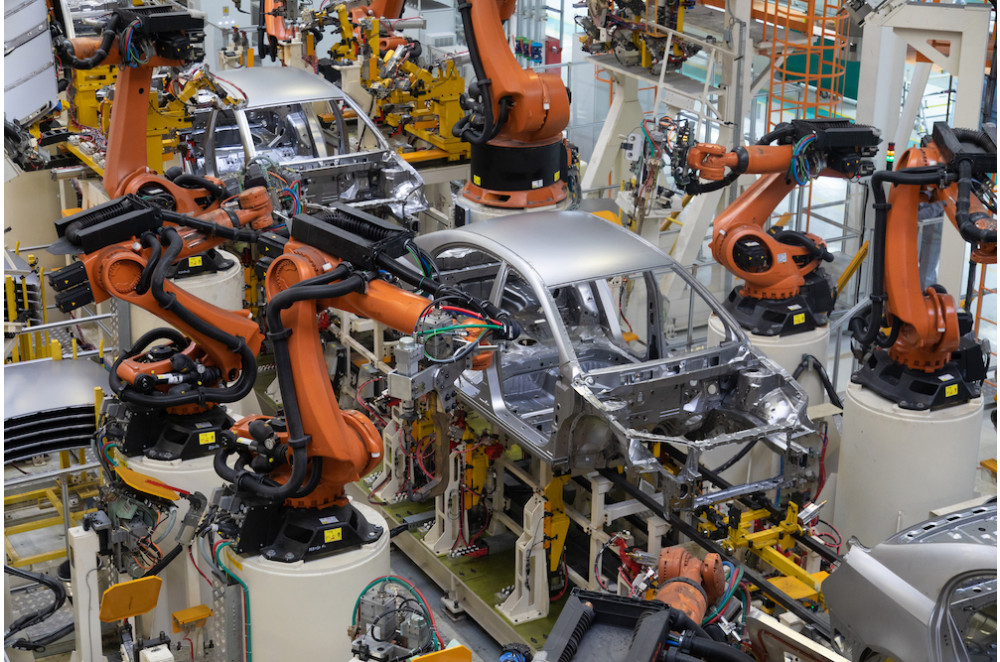Why Manufacturing Data Collection (MDC) is Essential for the Automotive Industry
In the fast-paced, highly competitive automotive industry, efficiency, innovation, and quality control are paramount. As automotive manufacturers face pressures from increasing technological complexities, environmental regulations, and consumer expectations, Manufacturing Data Collection (MDC) has emerged as a vital tool. MDC systems, like MDCplus, play a crucial role in streamlining operations, enhancing product quality, and driving innovation in automotive manufacturing
In the fast-paced, highly competitive automotive industry, efficiency, innovation, and quality control are paramount. As automotive manufacturers face pressures from increasing technological complexities, environmental regulations, and consumer expectations, Manufacturing Data Collection (MDC) has emerged as a vital tool. MDC systems, like MDCplus, play a crucial role in streamlining operations, enhancing product quality, and driving innovation in automotive manufacturing.
The Role of MDC in Automotive Manufacturing
Enhancing Production Efficiency
1. Streamlined Operations: In an industry where every second of production counts, MDC helps identify and eliminate inefficiencies. By collecting data on machine performance and production processes, manufacturers can pinpoint bottlenecks, reduce machine downtime, and optimize production schedules, significantly enhancing operational efficiency.
2. Real-time Monitoring and Control: MDC enables real-time monitoring of manufacturing operations, giving plant managers instant visibility into every aspect of the production line. This immediate insight allows for quick adjustments to keep production running smoothly and minimizes disruptions.
Boosting Quality and Compliance
3. Quality Assurance: Automotive parts and assemblies must adhere to stringent safety and quality standards. MDC systems facilitate continuous monitoring and testing of the manufacturing processes to ensure that every component meets strict industry standards. This reduces the risk of defects and recalls, protecting the brand reputation and consumer trust.
4. Regulatory Compliance: The automotive industry is subject to numerous environmental and safety regulations. MDC helps ensure compliance by providing accurate, real-time data that can be used for regulatory reporting and to prove adherence to legal standards.
Driving Innovation and Competitive Advantage
5. Data-driven Decision Making: With MDC, automotive manufacturers can leverage vast amounts of data to make informed strategic decisions. This includes everything from optimizing supply chain logistics to predicting market trends and adapting production lines accordingly.
6. Supporting R&D and Customization: MDC collects detailed performance data, which can be invaluable for research and development. Understanding how vehicles and components perform under various conditions informs future design and innovation. Additionally, MDC supports the trend towards customization in the automotive industry, allowing manufacturers to adjust processes quickly to accommodate custom vehicle features.
MDCplus: A Strategic Asset for the Automotive Industry
MDCplus stands out as a particularly effective MDC system for the automotive sector. Its capabilities enable manufacturers to:
-
Implement Predictive Maintenance: By analyzing data trends, MDCplus can predict equipment failures before they occur, scheduling maintenance at optimal times to avoid production disruption.
-
Enhance Quality Control: MDCplus provides tools that help maintain high-quality standards, crucial for automotive manufacturers to stay competitive and comply with industry regulations.
-
Increase Operational Transparency: With customizable dashboards, MDCplus offers stakeholders a clear view of production metrics, facilitating improved oversight and quicker reaction times to potential issues.
Conclusion
For automotive manufacturers, embracing MDC is not merely about keeping up with technology—it's about staying ahead in a fiercely competitive market. Implementing an advanced MDC system like MDCplus empowers manufacturers to improve operational efficiencies, uphold rigorous quality standards, ensure compliance, and drive forward innovation. In doing so, they not only meet the current demands of the industry but also shape its future.
Interested in digital transformation? Let's discuss!
Other articles
Here’s a breakdown of the most popular online services and communities machinists actually use when troubleshooting CNC problems — ranked by reputation, depth, and real engagement.
